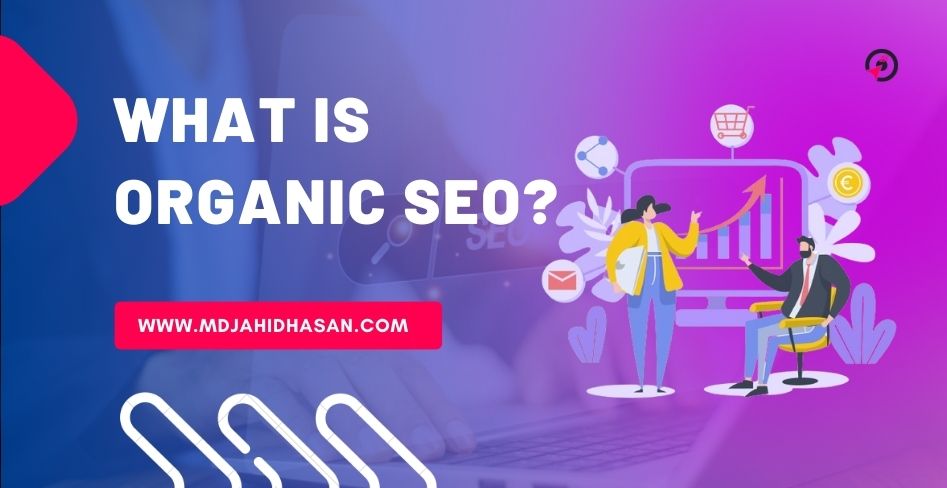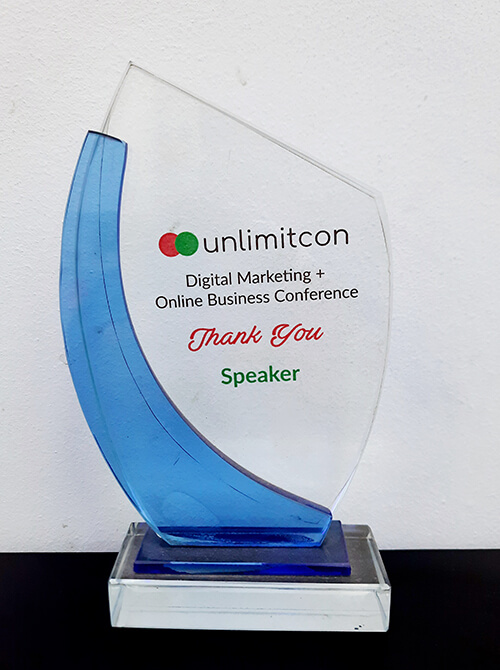What is Organic SEO?
Organic SEO refers to the process of optimizing a website to improve its visibility in search engine results pages (SERPs) naturally, without resorting to paid advertising. It focuses on enhancing various aspects of a website to make it more relevant and authoritative in the eyes of search engine algorithms.
Why is Organic SEO Important?
Organic Search engine optimization (SEO) holds immense importance in the digital realm due to several compelling reasons:
- Cost-Effectiveness: Unlike paid advertising, organic SEO does not require ongoing payments for clicks or impressions, making it a cost-effective long-term strategy.
- Credibility and Trust: Websites ranking high organically are perceived as more credible and trustworthy by users, leading to higher click-through rates (CTRs) and better conversion rates.
- Sustainable Results: With consistent effort and strategic optimization, organic SEO can yield sustainable results, ensuring a steady stream of targeted traffic over time.
- Competitive Advantage: By outranking competitors in organic search results, businesses can gain a competitive edge, establishing themselves as industry leaders.
- Enhanced User Experience: Organic SEO often involves improving various aspects of a website, such as page speed and mobile responsiveness, thereby enhancing the overall user experience.
How Does Organic SEO Work?
Organic SEO encompasses various techniques aimed at improving a website’s search engine rankings. These techniques can be broadly categorized into three main areas:
- On-Page Optimization: Enhancing the website’s content, structure, and HTML source code to make it more search engine-friendly and relevant to target keywords.
- Off-Page SEO: Building the website’s authority and credibility through external signals such as backlinks, social media engagement, and online mentions.
- Technical SEO: Optimizing the website’s technical aspects, including site speed, mobile-friendliness, schema markup, and crawlability, to enhance its visibility and user experience.
How do you grow organic SEO?
Organic SEO Growth
Organic SEO is the cornerstone of digital marketing, encompassing a range of techniques aimed at enhancing a website’s visibility on search engine results pages (SERPs) through non-paid means. A well-executed organic SEO strategy not only drives targeted traffic but also fosters credibility, trust, and long-term sustainability for your online presence.
Keyword Research and Optimization
Keywords are the foundation of SEO, serving as the bridge between what users are searching for and the content you provide. Thorough keyword research identifies high-value, relevant terms and phrases that resonate with your target audience. By strategically integrating these keywords into your website’s content, meta tags, and headings, you can improve your ranking potential and attract qualified organic traffic.
High-Quality Content Creation
Content reigns supreme in the realm of organic SEO. Crafting compelling, informative, and engaging content not only captivates your audience but also earns the trust of search engines. From blog posts and articles to videos and infographics, diverse content formats cater to different preferences while addressing user intent. By consistently delivering valuable content that meets the needs of your audience, you can establish authority in your niche and enhance your site’s visibility.
On-Page Optimization
On-page optimization involves fine-tuning various elements within your website to improve its search engine visibility. This includes optimizing meta titles, descriptions, and headers, ensuring proper URL structures, and enhancing internal linking. By adhering to SEO best practices and aligning your on-page elements with targeted keywords, you can enhance crawlability, relevance, and user experience, thus bolstering your site’s ranking potential.
Content Optimization
Content optimization goes beyond keyword integration to encompass a holistic approach to enhancing the quality and relevance of your content. This involves optimizing readability, formatting, and structure, as well as incorporating multimedia elements to enrich the user experience. By focusing on user intent and providing comprehensive, authoritative content, you can position your website as a valuable resource in the eyes of both users and search engines.
Image SEO
Optimizing images is an often overlooked aspect of SEO that can yield significant benefits. By optimizing image filenames, alt tags, and descriptions, you can improve accessibility, enhance user experience, and increase the likelihood of your images appearing in relevant search results. Additionally, optimizing image file sizes and leveraging responsive design principles can contribute to faster page loading times, which is a crucial factor in both user satisfaction and search engine rankings.
Schema Markup
Schema markup is a powerful tool that allows you to provide search engines with additional context about your content, enabling them to better understand and display it in search results. By implementing structured data markup, such as schema.org vocabulary, you can enhance your visibility through rich snippets, knowledge panels, and other enhanced search features. This not only increases your click-through rates but also enhances the relevance and prominence of your content in SERPs.
Off-Page Optimization and Link Building
Off-page optimization focuses on building authority and credibility for your website through external signals, primarily through link building. By earning high-quality backlinks from reputable websites, you can signal to search engines that your site is a trusted and valuable resource within your industry. This involves strategic outreach, content promotion, and relationship building to attract natural links and mentions from authoritative sources, thereby boosting your site’s authority and visibility.
Mobile Optimization
With the majority of internet users accessing content via mobile devices, mobile optimization is no longer optional—it’s essential. Ensuring that your website is mobile-friendly, with responsive design, fast loading times, and intuitive navigation, is crucial for providing a seamless user experience across devices. Mobile optimization not only improves user satisfaction but also aligns with search engine algorithms that prioritize mobile-friendly websites in mobile search results.
Website Performance Optimization
Website performance plays a significant role in both user experience and search engine rankings. Slow-loading pages, server errors, and other performance issues can negatively impact your site’s visibility and usability. By optimizing page speed, minimizing server response times, and addressing technical issues, you can create a faster, more reliable website that enhances user satisfaction and maximizes your SEO potential.
Social Media Engagement
While not a direct ranking factor, social media engagement can indirectly impact your SEO efforts by driving traffic, generating brand awareness, and facilitating content promotion. By cultivating a strong presence on social media platforms relevant to your audience, you can amplify your content reach, attract backlinks, and foster community engagement—all of which contribute to your overall online visibility and authority.
Monitoring and Analysis
Continuous monitoring and analysis are essential for gauging the effectiveness of your SEO efforts and identifying areas for improvement. By tracking key metrics such as organic traffic, keyword rankings, and conversion rates, you can gain valuable insights into the performance of your website and content. This data-driven approach enables you to refine your strategy, capitalize on opportunities, and stay ahead of the competition in the ever-evolving landscape of organic SEO.
How Much Does Organic SEO Cost?
The cost of organic SEO varies depending on factors such as the competitiveness of your industry, the scope of optimization required, and the expertise of the SEO service provider. Generally, prices can range from a few hundred to several thousand dollars per month.
How Long Does Organic SEO Take?
Organic SEO is a gradual process that requires patience and persistence. While some improvements may be noticeable within a few weeks, achieving significant results typically takes several months to a year, depending on the competitiveness of your niche and the effectiveness of your SEO strategies.
5 Steps to Get Started with SEO
- Conduct a Website Audit: Evaluate your website’s current SEO performance, identify areas for improvement, and set specific goals and objectives.
- Keyword Research: Research relevant keywords related to your industry, products, and services to target in your SEO campaigns.
- Optimize On-Page Elements: Optimize meta titles, descriptions, headings, and content to align with target keywords and improve search engine visibility.
- Create High-Quality Content: Develop informative, engaging, and shareable content that addresses the needs and interests of your target audience.
- Build Quality Backlinks: Earn backlinks from authoritative websites through guest blogging, content partnerships, and digital PR efforts to enhance your website’s authority and trustworthiness.
Difference Between Organic SEO and Non-Organic SEO:
Organic SEO focuses on optimizing a website’s content and structure to improve its visibility in search engine results pages naturally. In contrast, non-organic SEO involves paid methods such as pay-per-click (PPC) advertising and sponsored listings to increase visibility and attract traffic.
Should You Do Organic SEO Yourself?
While basic SEO practices can be implemented independently, achieving significant results often requires expertise, time, and resources. Engaging professional SEO services can streamline the process, ensure adherence to best practices, and maximize the effectiveness of your SEO efforts.
Conclusion:
Organic SEO serves as a fundamental strategy for businesses seeking to enhance their online visibility, attract targeted traffic, and foster sustainable growth. By embracing a holistic approach encompassing on-page optimization, off-page strategies, and technical enhancements, businesses can establish a formidable online presence and stay ahead in today’s competitive digital landscape.










